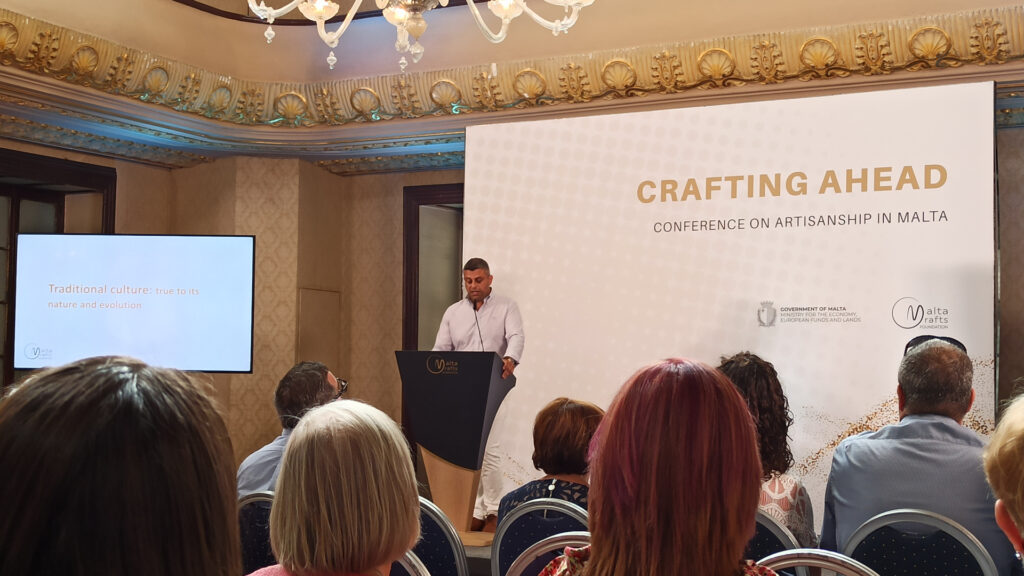On Thursday we attended a conference we really resonated with. “Crafting Ahead” was a conference that spelt the rebirth of craft in Malta through the adoption of digital and diversity – ultimately what the Golden Glitch is about.
“Crafting Ahead” was organised by the recently established Malta Crafts Foundation – a non-profit entity that falls within the remit of the Ministry of Economy and Industry. At the onset, it was acknowledged that crafts in the wider sense, risked extinction, to which CEO Elton Micallef called for cultural adaptability within the sector. The buzzword Innovation was repeated throughout the day, with numerous appeals to the sector to break away from an isolated approach to the craft and to embrace technology and cross-sectoral collaborations.
Keynote speaker Anamaria Pantea Magri delved deeper into the meaning of innovation and its marriage to artisanship. Whereas it is fundamental for artisans to create ideas and move on to develop them into a fully-fledged product, Magri reiterated that it is imperative to innovate, in that the product needs to become a proposition of socio-economic value.
It was also clear that digitalisation has to be integrated within existing processes in order to sustain the crafts. With what appears to be a silent resistance by a number of artisans, particularly the older generation, the conference pushed for an open mindset towards tech and healthy competition. Elizabeth Miroshnichenko from the World Crafts Council Europe reassured the artisans that innovation and digitalisation cannot and will not substitute or cast out the crafts.
Micallef emphasised the need for artisans to understand and develop their audiences and to focus on offering an experience rather than just a product – there is a yearning for craft experience and the story behind it rather than the craft as a stand-alone. Without a story, the market tends to appreciate the craft at face value leading to decision-making based on cost. Micallef asserted that lower quality and imported cheaper alternatives are not a solution.
Participating artisans agreed that certification and/or quality label was required in order to distinguish between artisans and resellers of imported goods. Micallef confirmed that alongside the EU’s process to adopt a GI (Geographic Indication) certification for all crafts, the Malta Crafts Foundation was in continuous dialogue with the commerce department to establish such a label on a national level.
Education, both for the market and especially for children was required in the pursuit of a better appreciation of the craft skills and process. This is thought to not only improve sales but also nurture future generations in adopting a craft as a career instead of traditional professions. On the other hand, artisans commented that education on creative and innovative entrepreneurship is critically needed across the entire ecosystem of artisans.
Concluding the conference, CEO Elton Micallef confirmed that the World Crafts Council Europe’s 2023 conference will be held in Malta, until which the Malta Crafts Foundation is committed to issuing a 50-point strategic document for public consultation towards the development of crafts in Malta.



